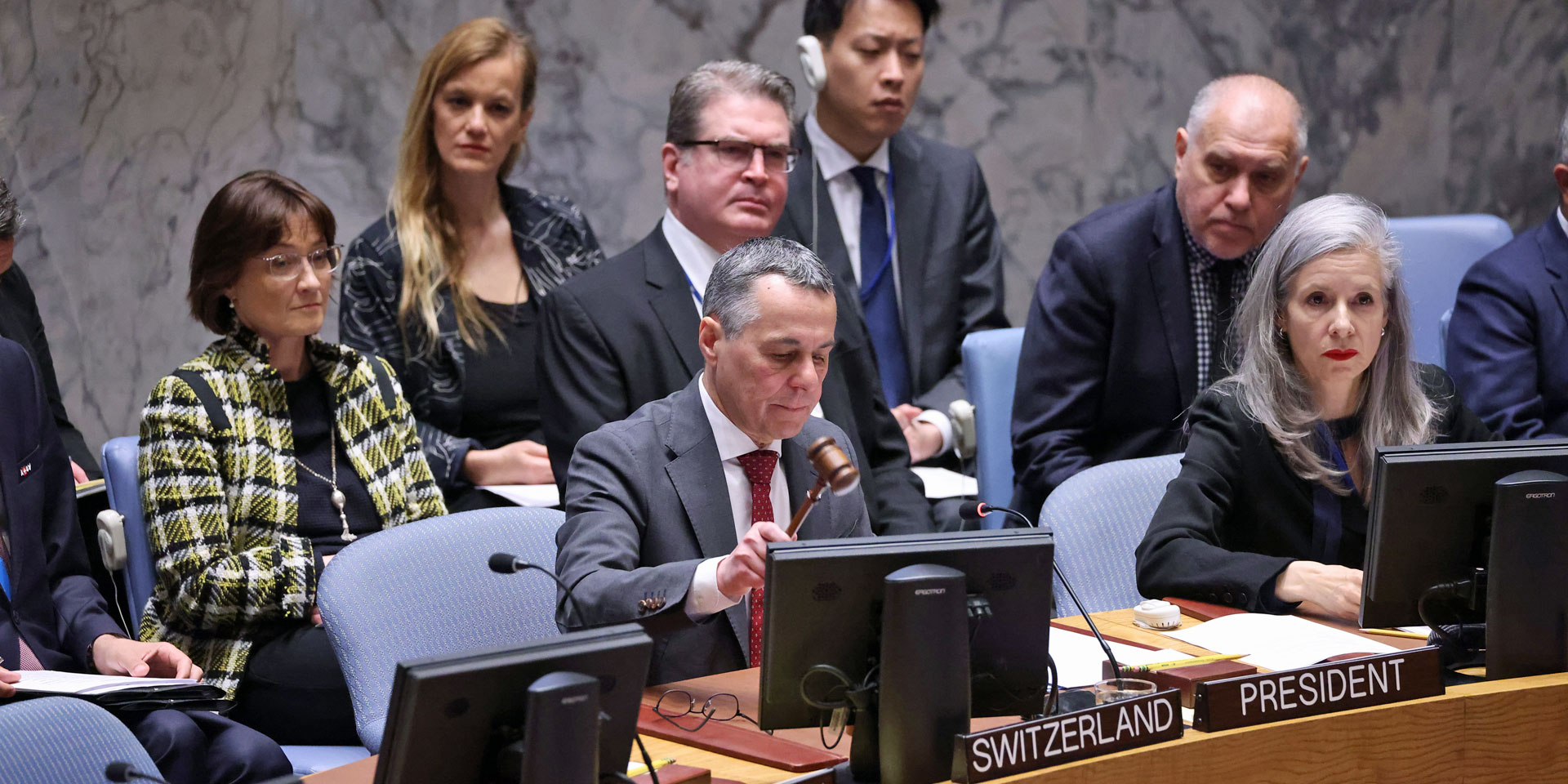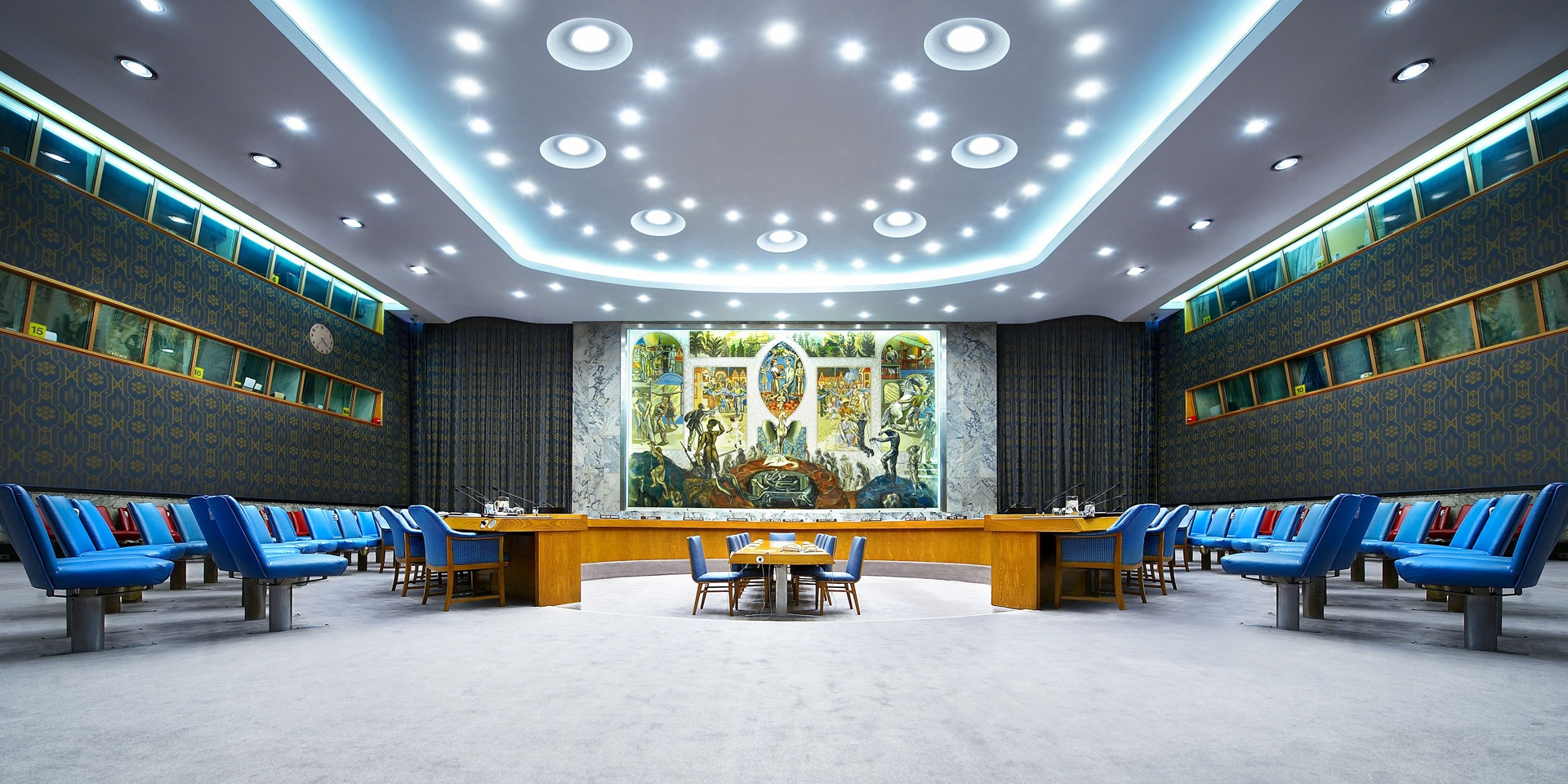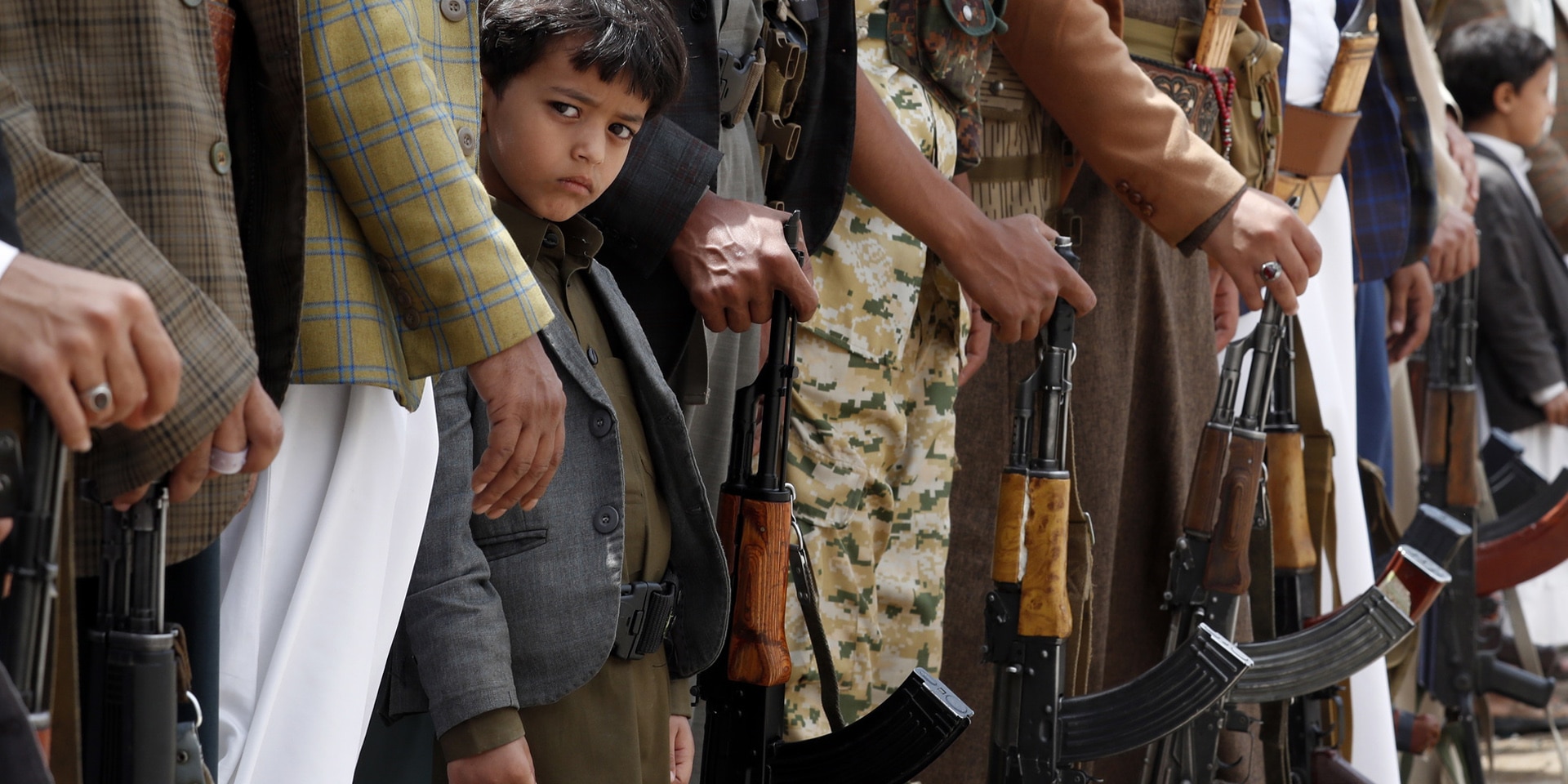A fragile peace in South Sudan
Since its independence in 2011, South Sudan has been the scene of armed conflicts and humanitarian crises. Almost five years ago, a peace agreement ended the war at the national level. But this peace remains fragile. Tensions persist. Switzerland is active on the ground and focusses on peace policy, development cooperation and humanitarian aid. In the UN Security Council, Switzerland supported the extension of the mandate of the UN mission in South Sudan, which plays a critical role in peace and security.
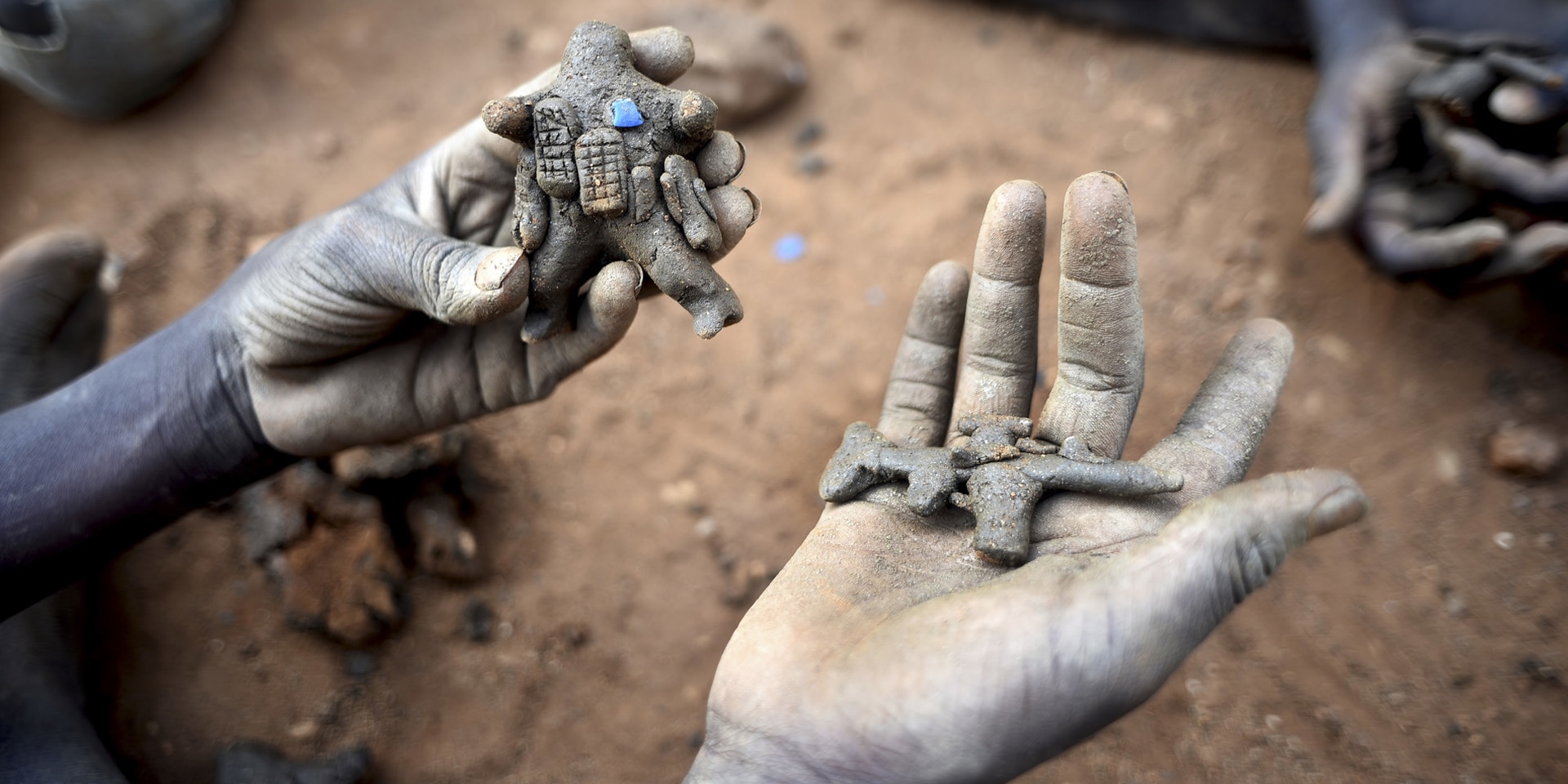
The model of a UN peacekeeper stands symbolically for UNMISS efforts to bring stability and peace to South Sudan, where violence is a daily occurence despite a peace agreement. © Keystone
Conflict and violence, lack of food, floods and the consequences of climate change overshadow the daily lives of the more than twelve million people in South Sudan. In 2011, the state gained its independence from Sudan. However, the government collapsed in 2013, which was followed by two civil wars that claimed the lives of hundreds of thousands of victims. Millions of people were displaced, about half of whom are women and children. The violence is rooted in deep societal divisions, disputes over access to natural resources such as oil and grazing land, as well as power at the national and local levels. In 2018, a peace agreement was negotiated between the parties to the conflict.
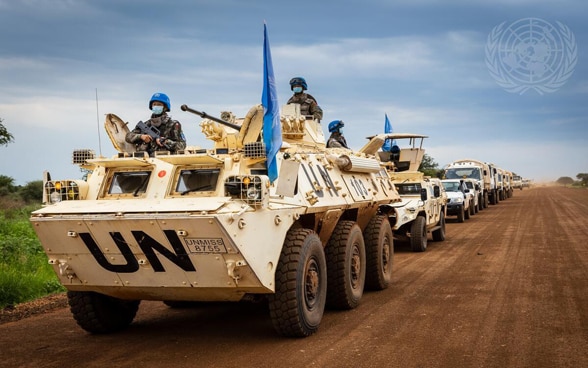
The UN Mission in South Sudan (UNMISS) has been active on the ground since the state's independence in 2011. On 15 March 2023, the UN Security Council extended the mandate for another year. As a member of the Council, Switzerland supported the resolution. The tasks of UNMISS include the protection of the civilian population, logistical support for humanitarian aid, strengthening the resilience of the population, supporting and implementing the peace process, promoting international humanitarian law and strengthening human rights. These priorities also correspond to Switzerland's foreign policy objectives in South Sudan.
Consolidating peace in South Sudan
The political situation remains fragile. The implementation of the 2018 peace agreement is making little headway. The formation of a transitional government in February 2020 accelerated this process only marginally. The ceasefire at the national level remains in place today, but at the sub-national level, violence unfortunately remains a daily occurence. UNMISS therefore plays an important role. As an armed blue-helmet mission, it actively contributes to protect the civilian population. With its presence throughout the country, it has a stabilising effect, is of central importance for the implementation of the peace agreement as well as for the establishment of democratic state institutions.
Cooperation with local actors to advance a sustainable peace
Switzerland plays a unique role in South Sudan. The existence of South Sudan as a politically independent state was made possible to a large extent by the successful peace negotiations with the former Sudanese government. Switzerland's good offices were of central importance in this process and the talks were partly held on the Bürgenstock, in Switzerland. For this reason and due to its long-standing presence on the ground, Switzerland enjoys the trust of many political and international actors in South Sudan. Today, this trust facilitates Switzerlands engagement in the fields of peace policy, development cooperation and humanitarian aid.
In the area of peace policy, Switzerland, together with other international partners, is supporting the transitional government and the other parties to the agreement in the implementation of the 2018 peace agreement. The aim is for South Sudan, the youngest member of the international community, to hold its first democratic elections at the end of 2024 and for a popularly elected government to take office in the spring of 2025. Key conditions for this are compliance with the ceasefire agreement and the involvement of all relevant political groups in shaping the country's future.
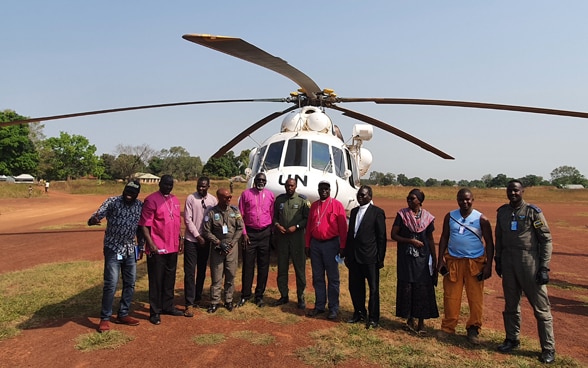
In addition to political parties, armed groups and South Sudan's international partners, communities also play an important role. It is therefore a priority for Switzerland, to advise local actors, who contribute to conflict resolution on the ground. One of these actors is the ecumenical organisation of the South Sudan Council of Churches (SSCC). Georg Stein, Human Security Advisor of the Peace and Human Rights Division of the FDFA in South Sudan, accompanies the SSCC in its peace work. "The churches have been involved in peace initiatives for many years and have repeatedly contributed to the resolution of violent conflicts. They are seen as impartial actors by parties to the conflict and have a moral authority that is recognised throughout the country: from the family in the village to the politician in the capital."
Switzerland provides its own mediation expertise for this purpose. It advises the SSCC - at the SSCC's request - on the development and implementation of peace initiatives, which have proved very successful, particularly in resolving sub-national conflicts. "As Switzerland, we can primarily offer methodological support, especially in the area of process design. For particularly delicate talks, we also offer the Swiss offices as "neutral ground". The "Swiss House" in Juba is appreciated as a place where difficult issues can be discussed freely in a confidential atmosphere." Part of the logic of building local mediation capacity is that Switzerland does not seek the limelight in the process. "During the actual negotiations, we always remain in the background. The Church Council now knows exactly how to deal with the conflicting parties. Seeing the fruit of this work, for example at a traditional reconciliation ceremony between different communities in Ikwoto County in Eastern Equatoria, is absolutely fascinating," explains Georg Stein.
Strengthening the autonomy of the South Sudanese people
Political instability and widespread violence at the sub-national level are having a devastating impact on the humanitarian situation in the country. The cumulative impact of years of conflict, chronic food insecurity, lack of basic services and the effects of climate change have left more than two-thirds of the population in need of humanitarian assistance. More than 60 percent of the population is affected by severe food insecurity.
Switzerland's goal is to ensure secure access to food for the most vulnerable population groups and to promote food autonomy. The focus here is on the interaction of humanitarian aid and development cooperation in order to sustainably strengthen the resilience of the affected population. This is done, for example, by supporting the training of farmers in increasing and diversifying agricultural production.

